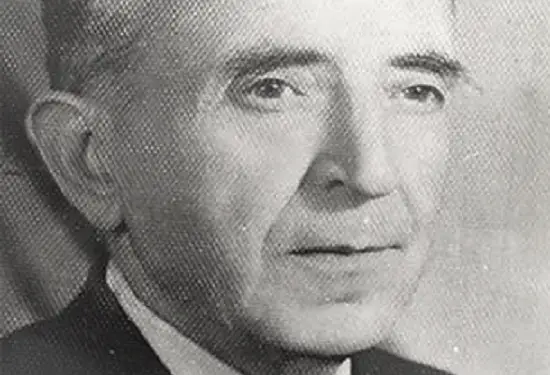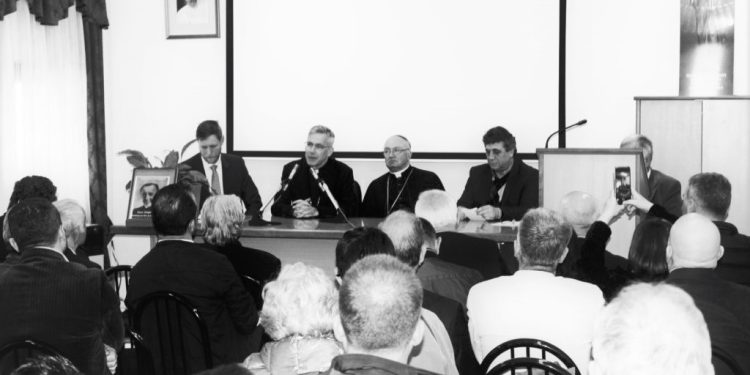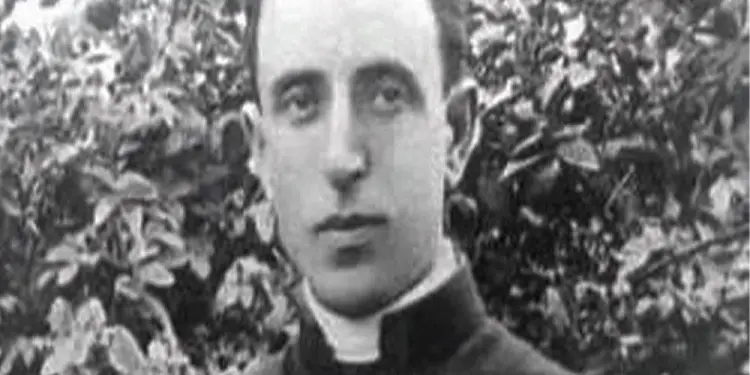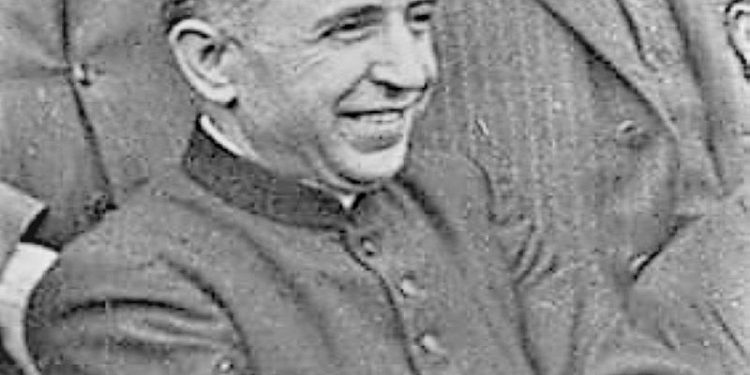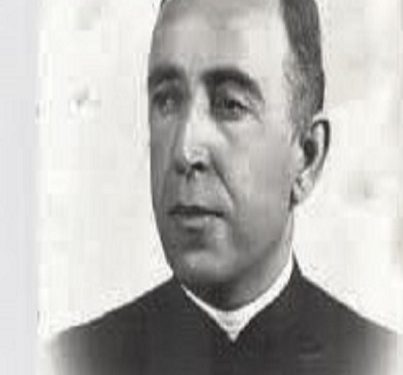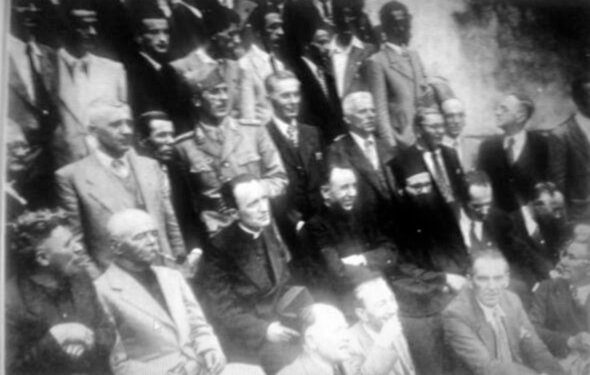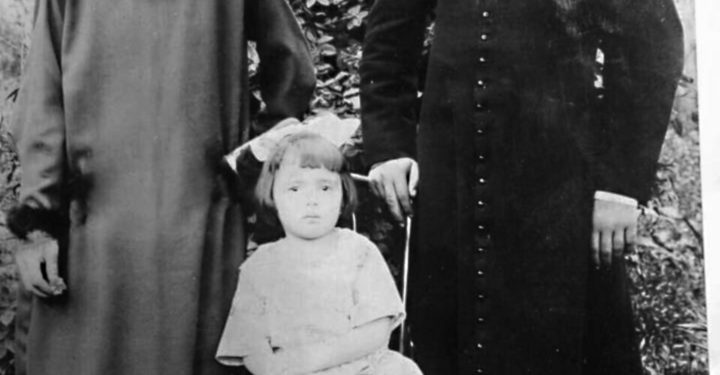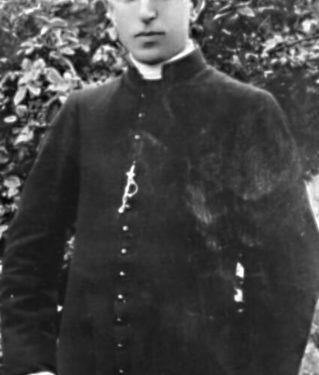NIKOLLË LOKA
Av. ALFDRED DUKA
NIKOLIN KURTI
Part twenty-six
– THE FORECAST MURDER OF A CLERGYMAN OF THE RENAISSANCE –
Memorie.al / Before we begin to briefly analyze the investigative and judicial file in charge of the defendant Shtjefën Kurti and others, for the reader we will make a parenthesis of the right and its history in human society, with the goal of coming to our criminal and procedural law, from its beginnings and throughout the years of the dictatorship.
A review of the first trial, to understand the second trial
We have assessed above that the criminal laws and legislation in our country, since the entry into force of the Penal Code of 1928, until the changes made to this Code by the first Pluralist Parliament in 1991, have suffered regression, from the point of view of narrowing the rights of the subjects of the law. Between this time span, we have the first strong break with the changes of 1945, which followed almost year after year and decade after decade the deterioration and narrowing of the rights of the subjects of the law until 1967, the year which finally destroyed the system of justice in our country, with the removal of the lawyer’s service. After this year, the thousand-year-old scales of justice, one of your arms was cut off, and it came being sidelined and sidelined without stopping, until its official overthrow, together with the dictatorship that gave birth to that monster, which was called “The Judge”.
There are thousands of examples to prove what was said above, but we will only focus on the “hero” of this paper, Don Shtjefön Kurti, as a subject of the law from 1946, when he was arrested, until 1971. , the time in which he was shot. From the materials we brought above, it is worth noting that, Dom Shtjefën Kurti, is accused of: “During the occupation, he was an agent of Jakomon and collaborated against Levizjes N.-Çl. That he was a leading and organizing member of Sami Qeribashi’s fascist terrorist organization, where he acted as a liaison between it and the Demo-Christian organization in Shkodër, with the fugitive criminals of the North, with Andon Dukagjin’s organization and with agents of foreign reaction. That he has acted as an agent of foreign reaction has helped them with espionage by handing over state secrets and has incited foreign countries to armed intervention against the People’s Power. That he smuggled foreign currencies and hid 3,000 dollars in order not to denounce them”.
Since his guilt is foreseen as a punishable guilt by article 7, 2, 3, para. 8, 9, 10 of the law 372, it is first necessary to judge and at the end of the judicial review, the Military Prosecutor’s Office of the Garrison of Tirana requested the trial of on the basis of Article 3, para. 5 of Law 372, on the part of this Court and after “proving” the guilt for which he is accused, his punishment is imposed, based on the above articles and his sentence with 18 years of imprisonment.
The Military Court decided: The guilt of the culprit Don Shtjefen Kurti and his punishment with twenty (20) years of deprivation of liberty, forced labor, the loss of civil and political rights for five years.
Regardless of the structure of the criminal provisions cited above, especially in relation to their sanctions, since each of them provided for the death penalty and all together, they would certainly bring the “guilty” Don Shtjefën Kurti to the ropes, after a temporary protection could to say, but still defense, the Military Prosecutor requested only 18 years of imprisonment, while the Military Court finally sentenced him to 20 years of imprisonment. We highlighted this trial, in order to face another trial in charge of Don Shtjefen Kurti, that of 1971, that is, 24 years later, at the end of which he would be sentenced by firing squad at the age of 73, without guilt!
Innocently! We say with absolute certainty that he was sentenced by firing squad, without violating any law, any law of the time! It is not possible to find today or then, except in Albania, a judge who would take Dom Shtjefën Kurti as a defendant for all his actions and inactions, committed from the day he was released in 1964, until the shooting his, based on the laws of the time in force. He had not consumed the criminal offense of agitation and propaganda and even less the criminal offense of sabotage, regardless of the fact that he was a person affected by the communist regime. So, he had not committed a crime, in the sense that the criminal law in force at that time provided for it. Why? Because in the Criminal Code of 1952 and that of 1959, which was in force without changes in 1971, Article 73 provided:
Agitation and propaganda against popular power!
“Agitation and propaganda that contain calls to undermine or weaken popular power, as well as the preparation, dissemination or storage for dissemination of writings with such content are punished: with deprivation of liberty from three to ten years, with or without confiscation of property. ..”.
From the literal, meaningful and integral reading of this provision, we understand that the agitation and propaganda that is done to undermine or weaken the popular power, is considered consumed with the content of the call, which understands that every thought expressed, in different conversations with a person, or with many persons, without calling to undermine or weaken the popular power, does not constitute a conspiracy of this criminal offense. So, the form of committing this criminal offense is not the conversations, whatever they may be, but the call. From the detailed study of the file of the prosecution by the Security bodies, the file of the investigation in a state of arrest in prison and that of the trial of Don Shtjefën Kurti, in no single case does it turn out that he made a call to undermine or weaken the power popular. However, the justice of that time did not stop until his accusation and conviction for this criminal offense, as it had a maximum sentence of up to ten years.
But, after the Party wanted Don Shtjefën Kurti to be shot dead, another criminal offense was invented, that of sabotage. How did we get here? It results from the materials that were found in the file under his charge that the State Security had recruited in that area, the village of Gurrez and its surroundings, some collaborators, who, in accordance with the different lines of behavior that were given to them, stimulated various sensational events, such as the poisoning of drinking water, of bakeries, of the destruction of various road lines, of voltage, of telephone lines, of the burning of cattle stables, of their food base such as hay mills, various warehouses, etc., etc., as well as placing explosives on various monuments, such as Stalin’s, Skënderbeu’s, Vojo Kushi’s, etc. As ridiculous as these types of actions may seem today, they are reflected in the files, which we will present as facsimiles as far as possible, for each individual case. Security through these collaborators, stimulated the performance of these acts of sabotage, consuming the stages of compromising the persons he targeted for the performance of these actions, but not performing them, since for the conviction of the persons who were interested in Security, the stage of preparation and the criminal offense was considered spent.
While in relation to the undermining of any monument, it allowed it to be carried out by these collaborators, together with the “victims”, who were planned to be punished later, as in the case of placing explosives on the monument of Stalin in Tirana, in in 1968. Of course, only a stimulating action was carried out with a capsule that the Security had prepared with due care, giving these persons a package of dynamite, apparently, but only one capsule was placed in it, so as not to make a fuss, only to be used as evidence for the conviction of persons who were scheduled to be convicted. With such a maneuver, in 1958, Pjetër Mir, a person from Gurezi, who was the son of a respectable family of that area, was shot, and several others were convicted with this device. The same scenario was prepared by the State Security for Don Shtjefën Kurti in 1968 and a year later, after the arrest of the group that was convicted together with him, for this criminal act.
Initially, the other arrested persons, except for Dom Shtjefën Kurti, are charged with the criminal offense of Theft provided by Article 80 of the Criminal Code of the time, a provision which could serve as a legal basis, only if the large proportion was proven by an expert report of their thefts, but later this charge is dismissed for all of them, and all of them, together with Dom Shtjefën Kurti, are accused of the criminal offense of Sabotage, provided by Article 72 of the Penal Code. From a legal point of view, the charge of theft of socialist property, for the other defendants, had to be raised and remained, certainly not in large proportions, but it was not enough. It was not enough since the Priest remained without being shot with this formula, because he had not stolen and only the agitation remained, but the agitation did not shoot him. Then? Then the thieves of the socialist wealth had to be transformed into saboteurs, because that’s the only way the Priest gets into the dance with the others. And what dance? That’s the only way the Priest removed the dance of death!
After a year of inhumane torture, on February 26, 1971, the investigative file was sent to the Kruja Prosecutor’s Office to approve the indictment. The investigative process was carried out by the investigator Iljaz Haxhiaj, who questioned Dom Shtjefni on the following dates: June 12, June 13, June 17, June 21, July 15, July 17, July 18, August 13, August 23, September 8, 11 September and October 1, 1930.
ACT-ACCUSE
Against the defendants:
- Jak Kurti works
- Mark (Bardhok) Mark Nikola
- Agostin Mark Preçi
- Peter Mark Biba
- Zef Gjok Nishi
- Fran Nue Noci
They are accused of the crimes provided by article 72 and 73/1 in combination with article 12 of the Criminal Code. Defendant Pjetër Biba, also for the crime provided by article 285/2 of the Criminal Code.
- Ndue Llesh Leti, for the crimes provided by articles 73/1, 80/1 and 285/2 in combination with article 12 of the Criminal Code.
During 1970, the Internal Affairs and Prosecution bodies of the Krujë district arrested: Shtjefën Kurtin, Mark (Bardhok) Mark Nikolla, Agostin Mark Preçi, Pjetër Mark Biba, Zef Gjok Nishi, Fran Nue Noci, Ndue Llesh Leti, all from the village of Gurez in the district of Kruje, because, in cooperation with each other and with other persons, for some time, they committed thefts to the detriment of the economy of the agricultural cooperative “Ndoc Deda”, Fushe Milot, with the aim of reaching in its destruction and sabotage and that they developed hostile agitations and propaganda against the government, which aimed at undermining and weakening the popular power.
From the conducted investigations, it turned out that: The defendant Shtjefën Kurti, an element with a hostile background and predisposition, sentenced in 1946 to 20 years of imprisonment for treason against the country as an agent in the service of Italian Intelligence, released from prison in 1963, immediately, begins his hostile activity towards the government. For this, in his meetings with the other defendants, such as: Mark (Bardhok) Marku, Pjetër Bibën, Zef Nishin, Agostin Preçin and Fran Noci, as he knows and is convinced of their hostile predisposition against the government, he begins to develop we had a friendly conversation, in the beginning about the small income they received from working in the agricultural cooperative, we made comparisons between social property and private property in the past, about the “good” life we had there and the “bad” life he and knowing about the thefts and embezzlements that they committed to the detriment of the agricultural cooperative, working diligently, systematically, not individually with each one, but managing to gather up to 5 people; no longer in occasional meetings on the street, at work or after work, but by organizing collective dinners, as is the case in the home of the defendant Pjetër Biba and himself in the room where the defendant Shtjefen lived, in which the following participated: Shtjefön Kurti , Mark Marku, Pjetër Biba and Zef Nishi.
In these meetings and so-called dinners, the defendant Shtjefën Kurti, an old enemy of the government with the greatest hatred, empties his counter-revolutionary ideas by presenting to the other defendants that the fall of popular power is close and a matter of time. On this basis, being favored by these concrete circumstances, the defendant Shtjefen Kurti, throws the counter-revolutionary slogan “steal, you get your toil and sweat” and explains that the overthrow of popular power comes by weakening its economic base, the people get a little, to become dissatisfied, to stand up against the cooperative system to destroy it. And the defendants, before they came into contact with Shtjefën Kurti, for a long period of time they stole separately or in cooperation with each other, embezzled the amount of 24,257 ALL, while this activity is taken over by the defendant Shtjefën Kurti, with the aim of sabotaging the economic activity in the agricultural cooperative and consequently, the people themselves rise up against this system, making these ideas their own and the defendants: Mark Marku, Pjetër Biba, Zef Nishi, Fran Ndoci, Agustin Preçi and others, the thefts intensify and the amount of embezzlements for a relatively short period of time (during the years 1968-1969) reaches the amount of embezzlements that were carried out during 10 years to 20/871 ALL.
The defendant, Shtjfen Kurti, as the instigator, inspirer and generally the spiritual leader of this hostile activity, in order to convince the defendant and to make him aware of the economic sabotage, politically and ideologically manipulates the other defendants by having hostile conversations with them. from different ones like:
– Going to work in the cooperative and not going to work is the same, therefore you should not go to work:
– In the cooperative, even the hard work you do is not rewarded;
– The cooperative system impoverished and destroyed the peasant;
– The order in Albania will change with the intervention of revisionist and imperialist forces as in Czechoslovakia. That in our country there is no democracy, there is dictatorship, there is no freedom of speech and press;
– He spoke against the revolutionary measures taken by the Party, such as in the direction of religion, the reduction of yards and personal livestock, etc.
– They have heard and commented on the news of foreign radio stations;
– They spoke against the leadership of the party and the state;
– They have shown the desire to escape abroad to Yugoslavia.
The characteristic that verifies the blinding of the defendant Shtjefen Kurti by his hatred towards popular power is the fact that it is not enough to convince Mark Marku, Agustin Preçi, Pjetër Bibő, Zef Nishin, and Fran Ndoci to activate, but being a furious anti-socialist, tells the girl Dava Biba that, if they escape, they will take her with them and send her to school, to become a nun. The defendant, in order to return the past, spares no means against the popular power.
Analyzing the facts gathered in the criminal case against the defendants, it is proven that:
The defendants: Mark Marku, Agustin Preçi, Pjetër Biba, Zef Nishi, Fran Ndoci and Ndue Leti, all with hostile composition. Declassified or that their relatives have fought against the popular power and have been convicted by our courts, and consequently the above-mentioned defendants also have a hatred of the class war, which in this case was specifically expressed in their desire to throw away changed and replaced popular power with a power that supports wealth and private property. This is the basis that unites these defendants and that, being in meetings with one another, each one expresses thoughts, wishes, requests and proposes that in the end they fight the people’s power.
For example, when the defendant Mark Marku, Fran Ndoci, Ndue Leti and others listen to their radios some news such as the fascist action of the Soviet revisionists against the Czechoslovak people, in these defendants hope is strengthened, enthusiasm blossoms that such an action it can also happen on Albania., or being kneaded, processed and inspired by their contacts with the defendant Shtjefën Kurti, when they see in life the concretization of the slogan of the Party “Soldier People” and the measures taken for the various trainings lessons that the army and the people do together, these defendants comment as a manifestation of the weakness of the people’s power, boasting the strength of enemy countries of the People’s Republic of Albania.
Being prepared in this way as furious enemies, the defendants put into practice with great zeal and unparalleled hatred the teachings of the enemy of the people, the Catholic priest, the defendant Shtjefen Kurti, that through embezzlements weaken the economic base of the agricultural cooperative elementary and they achieve this fact not only with the items that they appropriate from the social property of the Fush-Milot cooperative, but by broadcasting the hostile slogan of the defendant Shtjefën Kurti, they incite support and teach other people to steal as well. This comes alive to the extent that the amount of embezzlement by all the defendants amounts to ALL 45,128, excluding the embezzlements made by other persons who collaborated with the defendants, but who were not held criminally responsible. Memorie.al




